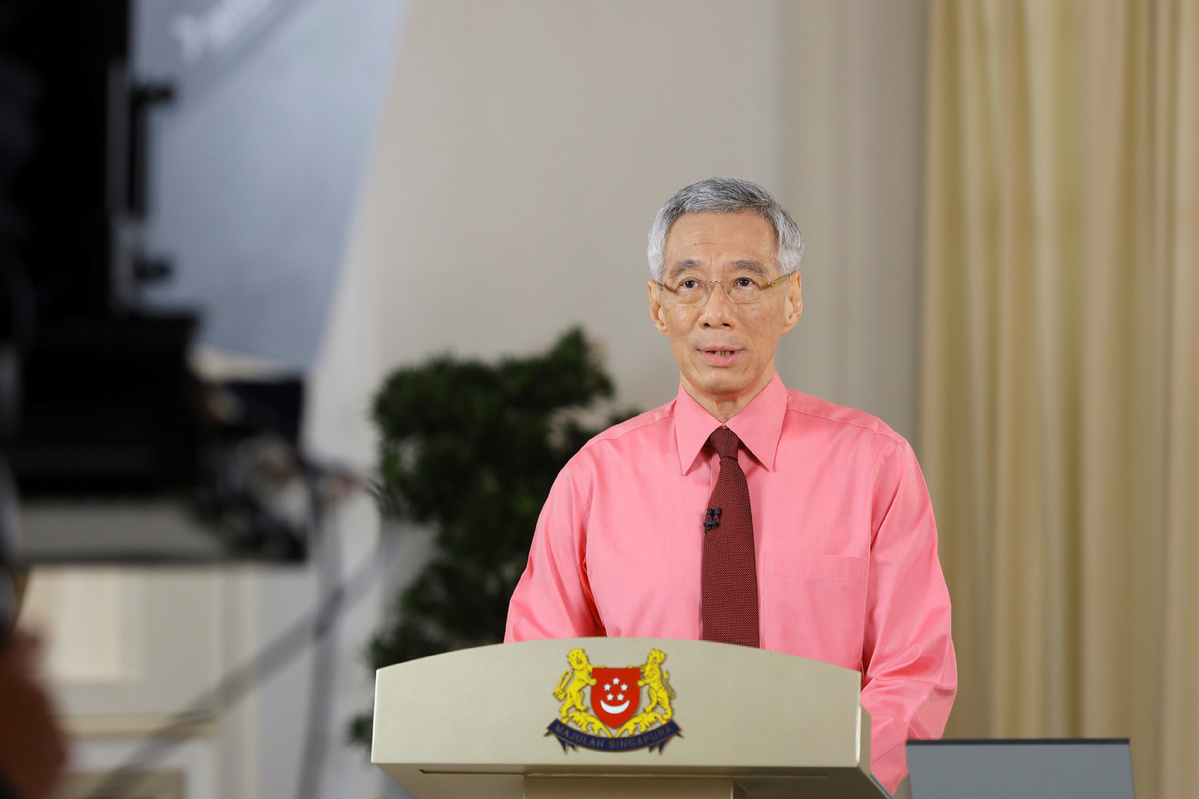Singapore's prime minister urges US and China to reset ties
By CHEN WEIHUA in Brussels | chinadaily.com.cn | Updated: 2021-01-30 01:42

Singaporean Prime Minister Lee Hsien Loong on Friday called on China and the United States to reset their relationship under a new US administration to avoid a clash between the world's two largest economies.
He made the remarks in the closing address at the World Economic Forum Davos Agenda virtual meeting, which ended on Friday.
Singapore is scheduled to host an in-person special meeting of the annual event in May. Lee said that Singapore has grown incrementally since the beginning of China's reform and opening up in 1978.
"Everybody has benefited from that -- Chinese people, but also all its trading partners, Europe, America and Asia," he said.
He noted that tensions between China and the US have intensified sharply over the last four years, with both adopting more assertive and uncompromising postures.
"The US now sees China as a strategic rival and challenger to its preeminent position and China is vigorously asserting what it considers its rightful place in the world," Lee said.
He said it was difficult for the US to adjust to China's rise since it has been the world's only hyperpower for so long.
"I think if you see China as a threat, that is going to be a very big problem because then you are creating a threat and the struggle will continue for a long time," he said.
"China is not going to collapse the way the Soviet Union did."
He said that "it cannot possibly be too late for both countries to reset the tone of their interactions and avert a clash between them, which will become a generational twilight struggle".
Lee said the new US administration is an opportunity to steer the relationship toward safer waters.
"Amid President (Joe) Biden's many urgent preoccupations, the US-China relationship should become a key strategic priority," he said.
"To persuade your own people - the population, Congress, the intelligentsia, I think that takes leadership of a pretty high order," he added.
Fu Ying, a former Chinese vice-foreign minister, said there had been serious damage to China-US relations over the past year that cannot be underestimated.
"It's a challenge for both sides to find the right way forward," she told an afternoon session of the Davos forum.
Fu believes that the current US administration needs time to assess areas it must cooperate on with China, and areas it needs to manage to avoid conflict.
"For the Chinese side, I think we also need to reflect and observe what is the intention, what is the next move by the United States," she said, adding that China has no intentions toward world dominance.
Kang Kyung-wha, foreign minister of the Republic of Korea, said the idea of decoupling may be possible, and already happening, in certain areas of crucial strategic interest, but the overall idea of decoupling is unrealistic because businesses are too interconnected.
While Kang noted the importance of sharing values with like-minded countries, she said "that should not prevent us from cooperating with societies that don't necessarily share those values".
"The world is a very complicated place and the reality is not clean-cut," she added. "I always say, reality is very messy. The job of leaders at national and global level is to manage that messiness and find solutions that are beneficial to all. Win-win."
Saudi Arabia's foreign minister, Faisal bin Farhan Al Saud, said his country is a strong partner for both China and the US economically.
"We see that cooperation is not just possible but absolutely necessary," he told the session.
"Without cooperation, we cannot deliver prosperity, we can't (bring) security to our individual nation or to the global community," he added.
Indonesia's foreign minister, Retno Marsudi, said: "Indonesia hopes ASEAN and China can cooperate better."
Taro Kono, Japanese minister for administrative reform and regulatory reform said: "We definitely have to work together."
























